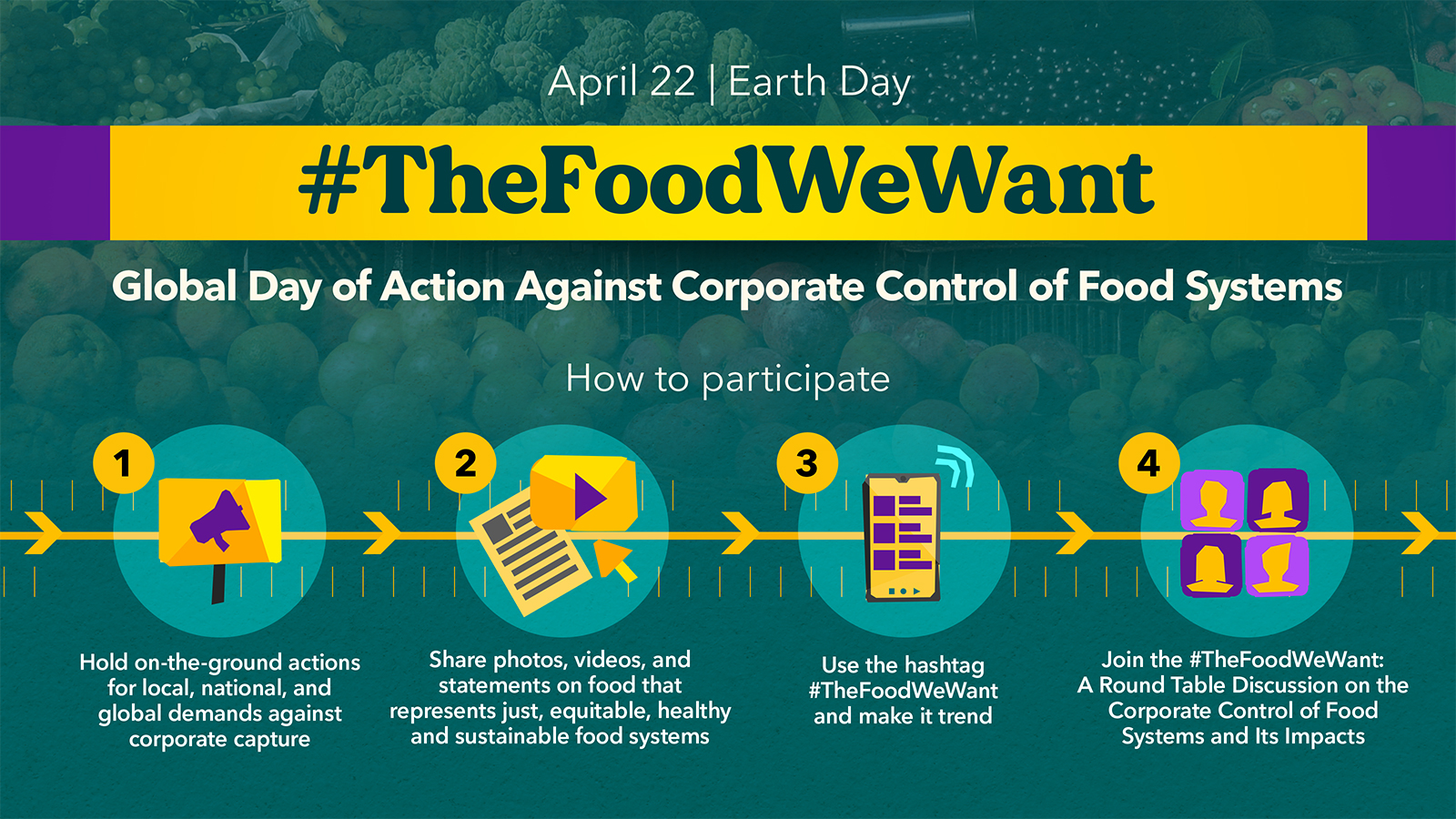There has been an upsurge in the push by grassroots movements to change how and for whom we produce food amid the worsening hunger and destitution of the world’s poor, ironically including food producers. The COVID-19 pandemic both exposed the structural flaws of the global food systems—currently unjust, inequitable, unhealthy and unsustainable—and underscored the urgent need for a truly radical transformation.
Transnational corporations (TNCs) and their lobbyists are constantly trying to squeeze every drop of profit in the food and agriculture sector by introducing more layers of corporate capture such as public-private partnerships, financialization, and digitalization. As if their current control over food and agriculture systems wasn’t enough, TNCs are vying for even bigger market dominance and expanding its sphere of influence in public policy spaces, particularly the UN.
The United Nations’ Food Systems Summit (UNFSS) that will be held in September 2021 promises “new actions to transform the way the world produces and consumes food.” However, the blueprint for the Summit appears to have stemmed from the UN’s 2019 Strategic Partnership with the World Economic Forum (WEF), a platform for the global economic elite to promote the corporate agenda in the guise of “improving the state of the world.” By financing Agenda 2030, the WEF is ensuring that global governance perpetuates neoliberal policies in food and agriculture and promotes market-oriented “solutions” and techno-fixes to hunger and climate change. Capitalist-philanthropic organizations such as the Bill & Melinda Gates Foundation and The Rockefeller Foundation—which have been responsible for much of the world’s food producers’ dependence on corporate-controlled hazardous technologies—are also said to have underwritten the Summit’s organization.
Corporate capture in the UNFSS is made evident by the appointment of Agnes Kalibata (president of the Gates-funded Alliance for Green Revolution in Africa, which supports chemical-intensive farming and the adoption of GM crops in the region), as UN Special Envoy for the Summit. It is further being materialized through the UN Food and Agriculture Organization’s (FAO) strategic alliance with CropLife International. An agreement signed last October 2020 between the UN FAO and the world’s biggest pesticide industry association pledges closer cooperation, threatening to undercut, among others, the UN agency’s commitments to agroecology as an alternative to a food and farming system heavily reliant on toxic pesticides that are estimated to poison 385 million people annually and cause massive ecosystem damage.
With the aim to demand food systems which put people’s fundamental rights above profit, our planet over corporations, and our sovereignty over monopolies, PAN Asia Pacific (PANAP) and the People’s Coalition on Food Sovereignty (PCFS) are launching the #Hungry4Change campaign for just, equitable, healthy and sustainable food systems, which will culminate in the Global People’s Summit on Food Systems.
On April 22, Earth Day, we’re inviting you to join us in #TheFoodWeWant: Global Day of Action Against Corporate Control of Food Systems as part of this campaign.
Ways to participate
- On-the-ground actions – If possible, protests at headquarters of agrochemical companies, food conglomerates, agriculture department offices, FAO offices; can also be in the form of local food fairs, gatherings, discussions, or other such activities that carry both local/national and global demands regarding corporate control of our food systems.
- Social media protest– Use the hashtag #TheFoodWeWant and make it trend! Share photos, videos and statements on what represents just, equitable, healthy and sustainable food systems. Farmers and consumers can post photos or videos of food or themselves with food/food crops, with a caption expressing the kind of food that people want:
#TheFoodWeWant is ____(examples: organic, non-GM, healthy, locally-produced, indigenous, puts farmers first, does not enrich Monsanto, is not linked to deforestation/land grabbing, is grown in harmony with nature, does not destroy the planet, does not poison farmers/the soil/water, in the hands of the people, nutritious and affordable, etc etc)___
- Join “#TheFoodWeWant: A Round Table Discussion on the Corporate Control of Food Systems and Its Impacts.” The RTD will discuss the latest developments on how corporations exercise control over food and agriculture and influence public policies through resource speakers from Asia, the Americas, and Africa. (Detailed program to follow)
Register now: http://bit.ly/TheFoodWeWantRTD
Our calls:
End Corporate Control of Food Systems!
Just, Equitable, Healthy and Sustainable Food Systems Now!
Stop FAO-CropLife #ToxicAlliance!
Sever UN-World Economic Forum Partnership!
Uphold People’s Food Sovereignty!








Discussion about this post